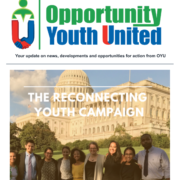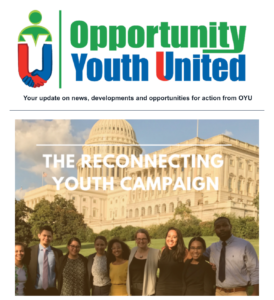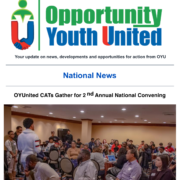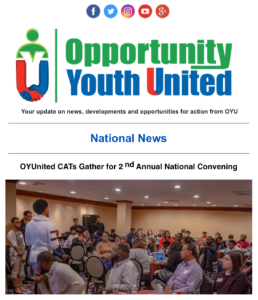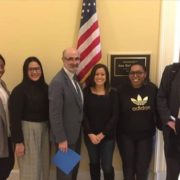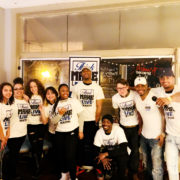By David Abromowitz
A new generation of founders and leaders of community-based organizations is emerging. This cohort of former “opportunity youth” — young adults ages 16–24 from low-income communities who left school early and were not in the workforce — are building on their own experiences and channeling their energies into innovative approaches to uplift their communities.
Take Terry Green in Columbus, Ohio. In 2015, Terry founded Think Make Live, which evolved from a presentation he had made to a senior humanities class at The Ohio State University.
Reflecting on his own journey out of poverty, Terry saw the need for an organization that could help teens and young adults in Columbus understand how someone makes a meaningful change in their life. He knew how hard that could be from his own struggle to overcome challenges and barriers.
Terry’s barriers were particularly steep: From 2009 to 2013 while in his early twenties, he had been incarcerated in state prison. When asked recently about what led to him becoming justice involved, Terry explained: “I grew up in a family where my father wasn’t in my household and my mother was involved in drug dealing. I picked up off my mother’s drug dealing ways when she got incarcerated during my 10th grade year in high school…”
But Terry realized while incarcerated that he wanted a different path. He participated in the Inside-Out Prison Exchange, a pre-release program offered by The Ohio State’s sociology department. He was released early to a half-way house program, and from there found his way to the Franklin County YouthBuild program in Columbus. His experience in YouthBuild opened his eyes to an alternative future.
“I started to meet people whose parents had both gone to college, so for them college was the family business. Suddenly I went from feeling like I was on a one-lane highway with only one destination, to seeing an off-ramp,” he recalls.
Like any of the thousands of students annually enrolled in local YouthBuild programs in 45 states, Terry spent half his time back in the classroom to complete his education, and the other half gaining work skills by building affordable housing for low-income and homeless families in his community. There were opportunities to engage in service to his community, and an emphasis on leadership training.
“I had to start thinking of making positive changes within my actions and now I am truly living a changed lifestyle,” said Terry.
Experiencing the power of service in his own life, he set out to create Think Make Live to be primarily centered around providing youth workforce development opportunities, innovative leadership programs and civic engagement community outreach. But the framework goes well beyond traditional social service referrals — the philosophy Terry has honed to help people identify their daily challenges and create innovative solutions infuses Think Make Live. Their services are focused on prevention, intervention and empowerment through a cognitive behavioral therapeutic approach.
Terry is tackling more and more barriers through this approach, expanding the organization to provide innovative social justice consulting for companies and nonprofit organizations, including consulting on ways business can hire justice involved youth.
In addition, he is combining his local activism with the need for national advocacy on behalf of young adults from similar backgrounds. Terry is an elected member of the YouthBuild USA National Alumni Council, which involves national travel hosting civic engagement and YouthBuild alumni gatherings. In 2015, he received the YouthBuild USA Outstanding Commitment to Leadership and Social Justice Award. He is also a community leader for Opportunity Youth United, a national movement of young people and allies working to increase opportunities and decrease poverty in America.
At The Ohio State University Mershon Center, he participated in a panel with Michelle Alexander, author of The New Jim Crow: Mass Incarceration in the Age of Colorblindness. In 2017, Terry was the keynote speaker for the 7th Restored Citizen Summit in Ohio, and a featured presenter at the National Association of Attorneys’ General annual meeting.
Terry is hardly unique among young adults from opportunity youth backgrounds leading in their communities. In Troy, New York, Steve Figueroa has been a force behind team HERO (Helping Everyone Recognize Opportunities), a nonprofit mentoring “at risk” kids through education and service projects. HERO reaches out to those in need, working to keep young youth off the streets and provide them with a safe environment, even providing them dinner. “If I want to see a community a better place, I have to look at myself first then make a change,” says Steve about his approach to his work.
In Baltimore, Joni Holifield was inspired by the uprisings in her community after Freddie Gray’s death to found a nonprofit called Heartsmiles “that focuses on motivating, inspiring and empowering Baltimore’s Youth to reach for success and to dream big regardless of their circumstance.” Joni was raised in a single parent home that she describes as “the typical scenario of most poverty-stricken families.” Through her efforts at HeartSmiles, she says, “and those of other ordinary citizens, we will reclaim our city and put our young people on a path for long term success.”
Germain Castellanos started the SHINE Educational Leadership Program in the same Waukegan, Illinois, high school he was kicked out of. As Germain has described his own background: “Growing up amidst gang-related violence and drugs, I had a front-row view of poverty in the U.S. As a youth hanging out with the wrong crowd, I found myself on the wrong side of the law, but at the age of 21 had cleaned up my act — I was a part-time college student with a full-time manufacturing job and had a 1-year-old daughter. I understood that, along with the bad choices that I had made as a youth, poverty was the common denominator in my case and those of other youth with my background across the U.S.”
The SHINE program continues as a workforce development program, supporting high school seniors in their transition to college and career planning in a school where over 90% of students are first generation in their family to go to college.
Each of these young leaders — Terry, Steve, Joni and Germain — is tackling a particular set of challenges specific to their community. But what they have in common reflects a larger-scale trend among many who have grown up in poverty, found their way through a supportive setting that helped them make a change, and then dedicated themselves to serving the next generation behind them.
These local leaders are beginning to connect up through organizations like Opportunity Youth United, which describes itself as “a solutions-oriented movement of young adults who have experienced poverty and are dedicated to creating a society with opportunity and responsibility, love and respect, education and employment, justice and equality for all.” In just a few years, OYU has fostered in-community action teams, bringing together opportunity youth to identify the local issues affecting their lives, consider solutions, and organize around seeing those solutions implemented.
There, of course, have long been young leaders emerging from low-income communities who have created positive change, even if their work was not always noticed more widely. What may be different for this generation could result from a confluence of several factors.
Encouraging and supporting youth voice and leadership has been at the core of the YouthBuild model since its founding in 1978. But leadership training was, for many years, largely absent from other efforts and programs that offered education or work training to low-income young adults. In the last decade or two, however, the importance of treating all enrollees as future leaders has infused other programs working with opportunity youth, such as the Corps Network. Organizations dedicated to fostering leadership skills among youth from disadvantaged communities, such as the 25-year-old Public Allies, which “seeks to find and cultivate those leaders and connect them to the issues and causes that ignite their passion,” have matured and their influence spread. The leadership eco-system has grown richer.
A second factor might be the emergence of “social entrepreneurship” as a recognized and lauded career pathway. While pioneering organizations such as Ashoka have promoted the power of individuals to be change makers for decades, the term social entrepreneur only came into widespread use in the 2000s. Along with the concept becoming more widely known, support systems for encouraging social entrepreneurship have developed rapidly in the past 15 years, such as the work of Echoing Green which offers “unrestricted seed-stage funding and strategic foundational support … to emerging leaders working to bring about positive social change” and the BMe Community, which offers Social Entrepreneur Fellowships for Black men.
Another contributing factor may be the wider recognition that low-income young adults are community assets, captured by the growing use of the phrase opportunity youth. In decades past, youth who left high school without a diploma and were not working might be labeled negatively as dropouts, delinquents, at-risk or the milder “disconnected.” The term “opportunity youth” emphasizes the talent and potential of this cohort of nearly five million young adults in America today.
This reorientation in language is based on path-breaking research published in 2012 such as the Opportunity Road report by Civic Enterprises, and The Economic Value of Opportunity Youth by Clive Belfield, Henry Levin and Rachel Rosen. The Opportunity Youth Network was launched in 2013 “to capitalize on the momentum created by the White House Council on Community Solutions, which brought new visibility and focus to the needs of 16–24 year olds who are not in school and not working.” Opportunity Youth United is linking up many of current and future leaders, who are learning from each other’s experiences.
At a moment in our history when a Time Magazine 50-year retrospective on the original Kerner Commission report shows that “its haunting prediction about America becoming two societies, separate and unequal, is as relevant today as it was five decades ago,” these dedicated leaders offer a reason for hope.
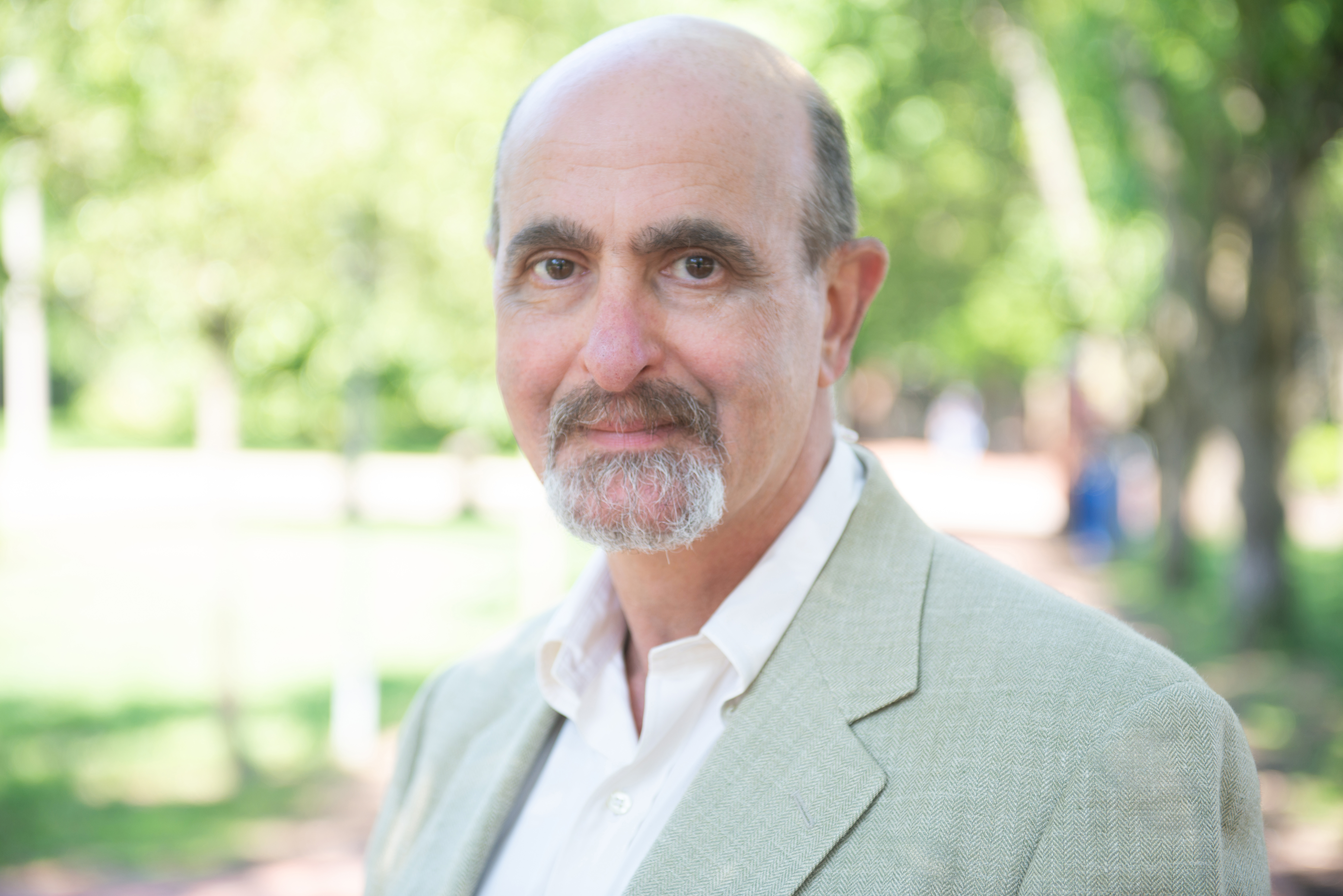
David M. Abromowitz is the Chief Public Policy Officer of YouthBuild USA. David joined YouthBuild after many years as a director (principal) in the law firm Goulston & Storrs PC, where he most recently co-chaired the firm’s real estate group. David is also a Senior Fellow at the Center for American Progress in Washington DC, and serves on the Board of MassDevelopment, the economic development finance agency for Massachusetts. He is a Vice-Chair and board member of the National Housing & Rehabilitation Association, a co-founder of the Council for Energy Friendly Affordable Housing, and a past chair and founding member of both the Lawyers’ Clearinghouse on Affordable Housing and Homelessness and of the American Bar Association’s Forum Committee on Affordable Housing and Community Development.
David has been recognized by the Trailblazer award of the National Economic Development and Law Center of Oakland, California (2004), the Fair Housing Center of Boston’s Open Doors Award (2007), the “social capitalist” award of SCI Social Capital, Inc. (2008), the Distinguished Achievement Award of B’Nai B’rith Housing New England (2013), and the Vision Award of the National Housing & Rehabilitation Association (2014).
This article was originally published on Medium, Under the Radar, a New Generation of Community Leaders are Launching Non-profits, 1/2/2019
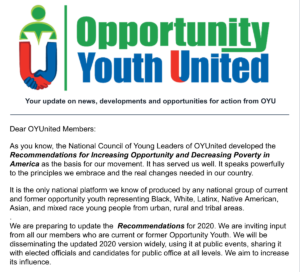
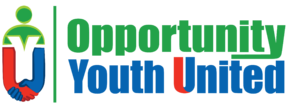
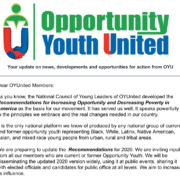
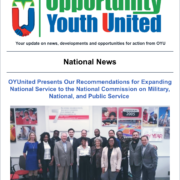
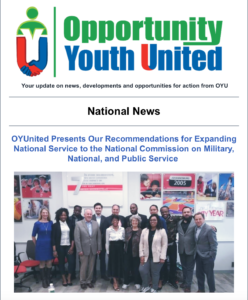
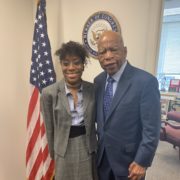
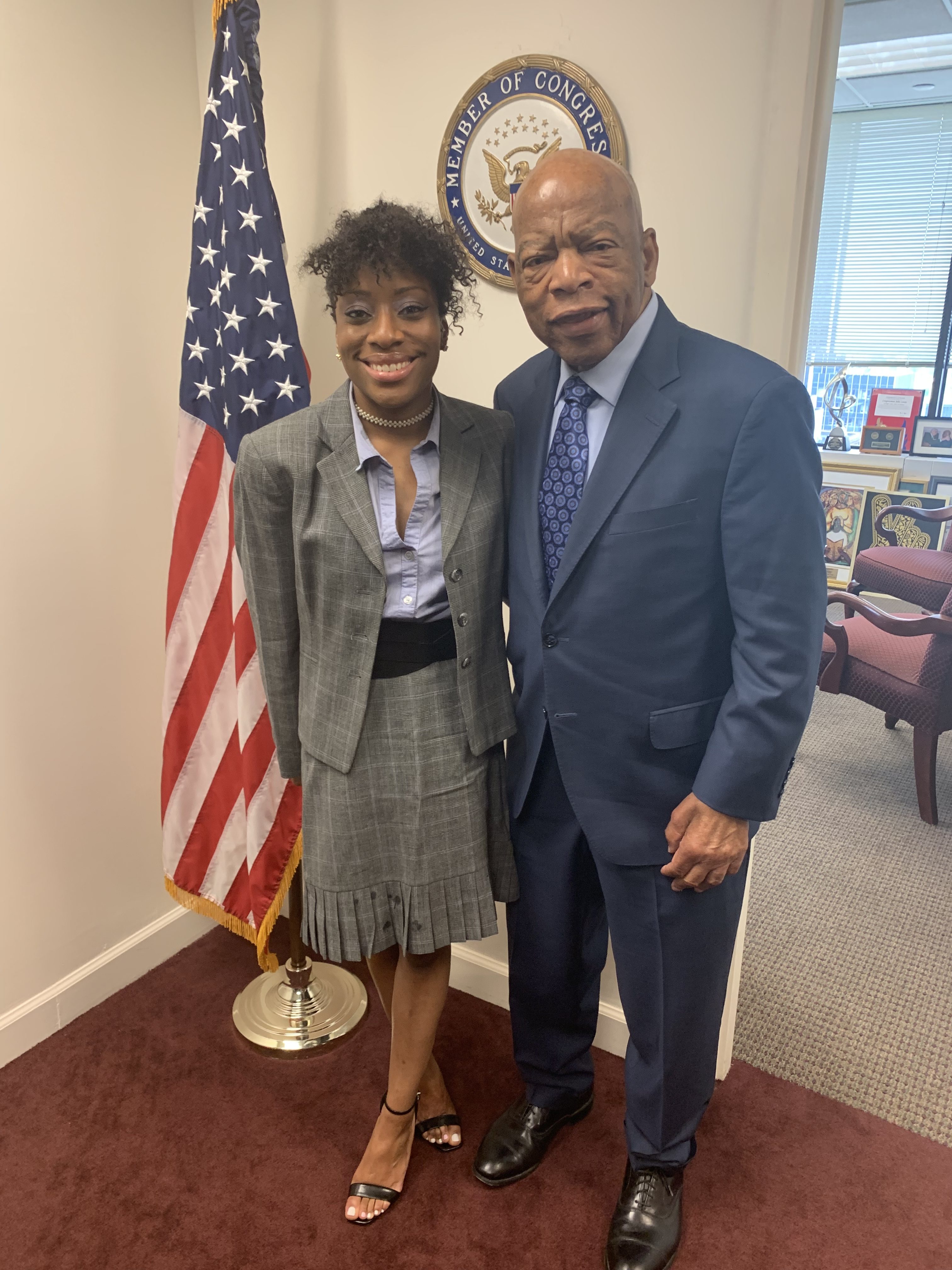
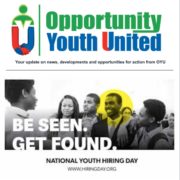
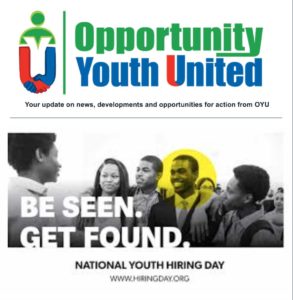
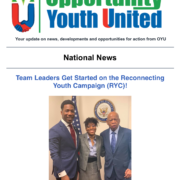
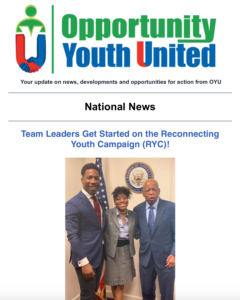
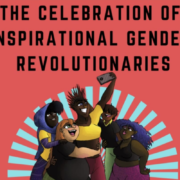
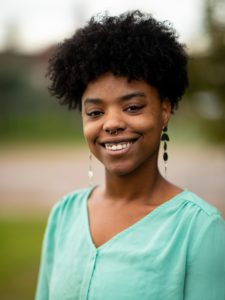 Makayla Wright (she/her/they) is the Youth Voice Organizer for SOAR, a Seattle-based community coalition working together to promote the healthy development of children, youth and families in Martin Luther King County and the anchor organization for the OYUnited Community Action Team (CAT) in Seattle. Makayla grew up in Leavenworth, Kansas. As the child of former Opportunity Youth who never went back to school to get their GEDs, she realized how important it was to work with young adults in similar situations. Makayla graduated from Smith College and has worked in educational outreach programs, youth residential treatment facilities, charter schools, and as an Academic Coach. As a Black woman from the Midwest, she is passionate about exploring root issues and working with communities, and now advocates for youth and young adults by convening the King County Youth Advisory Council and organizing the King County OYunited CAT.
Makayla Wright (she/her/they) is the Youth Voice Organizer for SOAR, a Seattle-based community coalition working together to promote the healthy development of children, youth and families in Martin Luther King County and the anchor organization for the OYUnited Community Action Team (CAT) in Seattle. Makayla grew up in Leavenworth, Kansas. As the child of former Opportunity Youth who never went back to school to get their GEDs, she realized how important it was to work with young adults in similar situations. Makayla graduated from Smith College and has worked in educational outreach programs, youth residential treatment facilities, charter schools, and as an Academic Coach. As a Black woman from the Midwest, she is passionate about exploring root issues and working with communities, and now advocates for youth and young adults by convening the King County Youth Advisory Council and organizing the King County OYunited CAT.